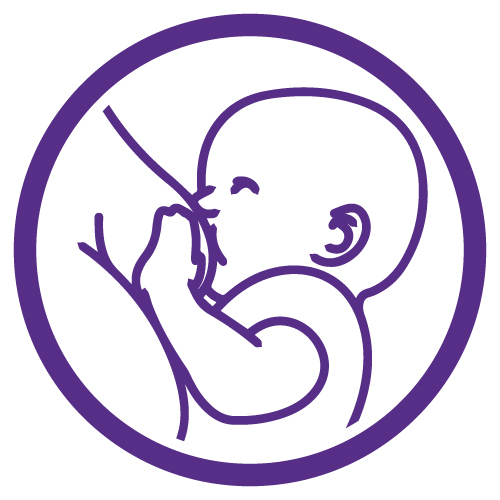 IBCLC Detailed Content Outline: Development and Nutrition / Infant Focused CERPs - Section I A
IBCLC Detailed Content Outline: Development and Nutrition / Infant Focused CERPs - Section I A
Access CERPs on Development and Nutrition / Infant for the IBCLC Detailed Content Outline recertification requirements. On-demand viewing of the latest Development and Nutrition / Infant focused IBCLC CERPs at your own pace.

Responsive Breastfeeding: The Key to Optimal Infant Development

Martina Donaghy is a registered midwife of 30 years, an IBCLC of 22 years and a Senior Midwifery Lecturer of 17 years’ experience. During the past two decades her main posts as a hospital based Infant Feeding Specialist and a Midwifery Lecturer has seen a focus on educating registered midwives, student nurses, midwives, paediatric and Specialist Community Public Health nurses on the importance of breastmilk and breastfeeding, ensuring these students are equipped to support the breastfeeding mother in achieving her feeding goals. Martina has led and supported her university to achieve successful UNICEF UK Baby Friendly accreditation for the BSc Midwifery and Specialist Community Public Health Nursing programmes. She also teaches on the Midwifery Master’s program specialising in the promotion and support of physiological birth, breastfeeding, biological nurturing, and maternal, infant attachment. Recent publications include a chapter in Examination of the newborn and neonatal health, titled Helping parents make decisions regards to infant feeding and cosleeping. Her most recent midwifery article focused on supporting maternal and infant physiology after birth. She is originally from Australia and has resided in the United Kingdom for 30 plus years.
From the moment of conception, maternal and fetal physiology is intrinsically linked in a synergistic partnership, with optimal infant development dependent on this relationship continuing well into the infants first 1001 days. A key pivotal facet of this reciprocal relationship is responsive breastfeeding. Responsive breastfeeding is far more than a way of infant feeding, but a sensitive synchronous parenting style that secures optimal growth, nutrition, immune development, infant /maternal attachment, whilst fostering successful lactation and the development of positive feeding habits well into infancy. This presentation will explain what is meant by responsive breastfeeding, exploring the science behind how this type of feeding promotes optimal infant health.
The presentation will conclude with an exploration of the wider benefits of responsive breastfeeding, examining the possibility of this type of feeding style contributing to improving several public health issues, in particular childhood aversity and obesity. Lastly, recommendations for promotion and support of responsive breastfeeding will be outlined.
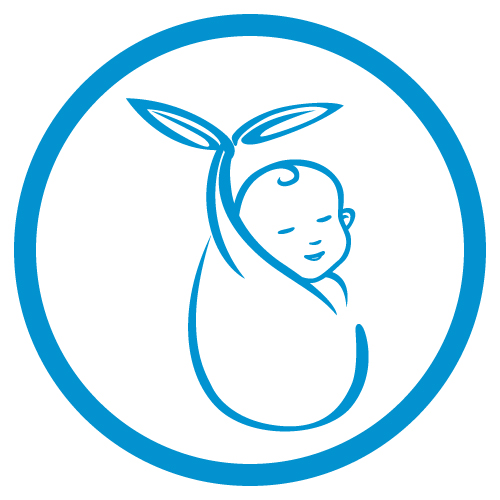
View Details / Enroll


Bryna is a lactation consultant, mentor, educator, and birth doula in the Pacific Northwestern United States. They are active in their community as an advocate for mutual aid, reproductive justice, and reduction in barriers to care. They also own and manage an inclusive private practice. As a member of both Queer and Neurodivergent communities, offering inclusive care on every level is very important to Bryna. Their vision is to offer information and tools to providers to build a community of comprehensive, concordant, and individualized care for all families in the perinatal period.
Topic: Breastfeeding With Ease: The Impact of Infant Reflex Emergence and Integration - [View Abstract]
Topic: Rhythmic Movement for Breastfeeding Function - [View Abstract]
Disorganized or absent infant reflexes can create challenges for breastfeeding/chestfeeding. This presentation takes a close look at the role of movement in the integration of disorganized infant reflexes and the use of rhythmic movement as a method for overcoming infant feeding challenges. This talk also covers socio-cultural impacts of trauma, lack of opportunity for movement, and modern care system barriers to reflex integration.

View Details / Enroll
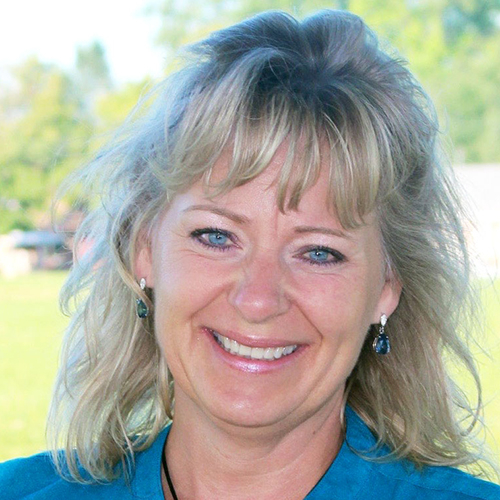
Rhythmic Movements: A Second Chance to Integrate Primitive Reflexes

Experience lively and informative workshops presented by Liz Jones-Twomey, a Blomberg International Rhythmic Movement Instructor/Consultant, ENVoY Classroom Management trainer, and recently retired elementary school teacher from the WRDSB in Canada - with over 33 years of experience! Liz has devoted a great deal of time and effort to expanding her knowledge of “brain-based” movement over the course of her career.
Liz has been a featured speaker on 4 continents and is co-creator of the following multiple award-winning movement-to-music CDs: “Catch a Brain Wave Fitness Fun;” “Smart Fitness, Smart Foods;” “Baby Connections Song Time;” and “Wiggle Jiggle Fitness Fun.” Liz has been honoured with the prestigious International Teaching Through Movement Award for her work with Brain Gym® and ‘best practice’ teaching strategies. She was presented with the W.T. Townshend Award of Excellence for her innovative teaching style, and is also a recipient of the Speedo National Fitness Instructors Award.
Liz recently participated in an 8-week research study with Queen’s University, ON , Canada, examining self-regulation and reflex integration with her Rockin’ Reflex Video Program for children ages 4 to 6 years old. This study demonstrated at a highly significant statistical level , that the rhythmic movements practiced in the Rockin' Reflex videos helped to integrate students' primitive reflexes and improved Self-Regulation skills.
Liz’s enthusiastic presentation style provides for plenty of highly engaging, hands-on, practical experiences for participants, as well as ideas about reflex integration and songs and movements that can be implemented immediately.
Primitive reflexes are necessary for an infant’s survival. These reflexes typically become integrated in the first year of life as the child instinctively practices rhythmic movements. If these reflexes do not become integrated into daily functioning, they may impede the development of more mature reflexes, causing difficulties in self-regulation, social, emotional, and academic aspects of a child's life. Studies have illustrated that rhythmic movements can give a child a second chance to integrate their primitive reflexes (Blythe, 2005; Grzywniak, 2017).
Liz Jones-Twomey, along with her musical partner Ron Hiller and researcher Susan Overvelde, conducted an eight-week research study with children ages 4 to 6. This study supports the idea that the primitive reflexes of school aged children can be integrated by practicing rhythmic movements which mimic those infants naturally do. The Blomberg Rhythmic Movements and developmental movements practiced in the Rockin’ Reflex videos used in the study, helped to integrate student’s primitive reflexes and improved Self-Regulation skills.
There was a statistically significant improvement in post-intervention primitive reflex scores, suggesting that the rhythmic movements practiced in these videos helped integrate children’s primitive reflexes. There were also statistically significant improvements in behavioural, cognitive, and emotional self-regulation scores, suggesting that by integrating primitive reflexes, children were able to self-regulate better.
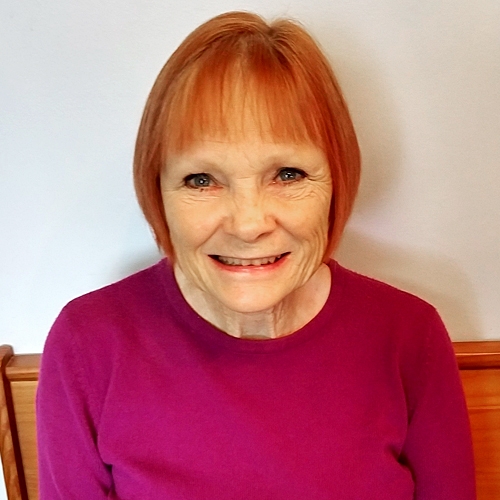
Sensory Integration and Breastfeeding

Nancy has been providing breastfeeding help and support for 40 years and has been a national speaker for 30. She has been a perinatal educator and consultant since the late 1970’s. Her second career is that of a Marriage and Family Therapist. Her passion is to explore the larger picture of the mother-baby dyad in the context of the breastfeeding relationship.
Topic: Teens and Breastfeeding - [View Abstract]
This session will look at sensory integration problems, now known as Sensory Processing Disorder. How might these difficulties impact the breastfeeding dyad and the family? We will describe this and present ideas on how to minimize the problems and support breastfeeding.


Mim Ochsenbein, MSW, OTR/L has been a practicing pediatric occupational therapist for over 25 years. She is the current Clinical Director of STAR overseeing a multi-discipline team, and previously was STAR's Director of Education. She received her BSc in Occupational Therapy from the University of Southern California (USC) in 1996 and her MSW from the University of California-Los Angeles (UCLA) in 2012. She has received advanced training in sensory integration (SIPT certification, STAR ProCert1, STAR ProCert2), listening therapy (Therapeutic Listening, iLs), feeding therapy (SOS), DIR, mental health (DC:0-5 Diagnostic Classification of Mental Health Disorders of Infancy and Early Childhood), and infant massage (CIMI). Her work in occupational therapy with children and youth has occurred in a variety of settings including early intervention, school based, clinic based, mental health and private practice. As a social worker, she provided case management, program development, and program management. Mim has taught both university level (California State-Dominguez Hills) and professional continuing education courses since 2013, spoken internationally, and has co-authored works for professional publications. She has been in her current role at STAR Institute since 2017 at the invitation of Dr. Lucy Jane Miller, PhD, FAOTA, OTR.
Having an understanding of the body’s sensory systems is an important part of understanding more about early childhood development. Sensory processing plays an important role in regulation, relationship and skill development. This presentation provides a look at the inter-connectedness of sensory processing-regulation-relationship by examining shared neurology and impacts on developmental trajectories.

Slow Weight Gain in the Early Days of Breastfeeding

Patricia Díaz L., Woman passionate about accompanying Women and Families through their Conscious and Connected gestational, birthing and parenting journeys. She is a trained Pediatrician, IBCLC and Doula. Graduated as a Surgeon physician and Pediatric Specialist from the Central University of Venezuela, at the main Children’s Hospital of the country; JM de los Ríos. From her formative years, she fell in love with the dynamic process of Breastfeeding and the unique physical, nutritional, immunological, qualities of it, along with the transformative emotional and spiritual bond that formed between the new parents and their baby: "Being a witness to that first magical and intimate human contact, is one of the most wonderful sensations in the world; I have ever experienced”. Dr. Patricia Díaz graduated as Promoter and Consultant of the Lactation Center ""Mi Gota de Leche” ( “ My Drop of Milk” ) at the Hospital J.M. de los Ríos, with the endorsement of UNICEF. She was part of the First Cohort of Diplomats in Breastfeeding and Complementary Feeding Practices, of the Faculty of Medicine, at the Central University of Venezuela. Member of the American Academy of Breastfeeding Medicine (ABM) and the International Lactation Consultant Association (ILCA). Trained as a Doula, at the Auroramadre Center in Venezuela. National and International speaker. With more than a decade of experience, Patricia, strongly advocates for Human Lactation Education, at her private practice in Venezuela, where she currently is the Chief of Pediatrics at La Trinidad Medical Teaching Center. At this center, she has co-designed the Respectful Birthing Protocol (to honor the Sacred Hour, Skin to Skin and Rooming in; most recently updated alongside Neonatology Department, to adjust it for COVID19 context). Also through her social media platform @PediatríaAutana (Tree of Life), she educates, advocates for Breastfeeding families and designs educational tools for Parents and Caregivers, Families and Teachers, in the most innovative formats, adjusted to their needs, concerning topics associated with Prenatal Prolactation Prep, Human Lactation, Parenting, Growth and Neurodevelopment, Pediatrics.
Topic: Slow Weight Gain in the Early Days of Breastfeeding - [View Abstract]
The early days of a breastfeeding journey, especially if it is the first one and there is not enough breastfeeding culture or support of the new family, bring challenges and risk factors for an unwanted early termination. Among all the causes for an early abandonment of exclusive breastfeeding, there is the ghost of insufficient milk supply, associated in popular belief (and unfortunately) sometimes also in professional health provider’s belief, with little or no evidence-based information on human lactation.
In order to make an appropriate and timely approach to a slow weight gain baby, we must take into consideration anatomical, functional and behavioral/emotional factors. Learn more about how to establish an appropriate nutritional diagnosis, based on the use of globally standardized anthropometric index, for exclusively breastfed children, factors that may contribute to a misperception of slow weight gain in a breastfed child, the difference between failure to thrive and slow weight gain and how to establish safe nutritional recovery strategies, focused on the dyad and aimed at preserving breastfeeding.

Sucking Disorders in Children with Neurological, Muscular, Genetic or Anatomical Diseases

Lina Mazzoni is a Lactation Consultant, IBCLC with a Bachelors Degree in Speech and Language Therapy. Since 2013 she has been working primarily with children and specialized in the treatment of sucking, swallowing and feeding disorders. In 2019 she became a Lactation Consultant to be able to work equivalent with the children and the mother. As a working mom she worked part time as a Lactation Consultant in a hospital in Hamburg, started her own privat practice in 2019 and since october 2021 she works exclusively in her private practice as a lactation consultant and SLT. She also works as an Instructor in lactation education and further education regarding feeding developement and disorders . Lina has two children and lives with them and her husband in Hamburg, Germany.
Topic: Sucking Disorders in Children with Neurological, Muscular, Genetic or Anatomical Diseases - [View Abstract]
For an infant, breast/chestfeeding and sucking is the normal form of feeding. If an infant is born with an underlying neurological, muscular, genetic or anatomical disease or if neurological changes occur due to complications, this form of feeding may be disturbed. Since the interaction of breathing-sucking-swallowing requires the coordination of over 60 muscles and several cranial nerves, even small changes in physiology can throw the system out of balance. Congenital-Heart-Disease, Down Syndrome or a disorder of the central nervous system due to pre- or postnatal trauma, infection or structural defect differ in their symptoms, but what they all have in common is that sucking and oral intake of food can be impaired. When working with infants or lactating parents, children with sucking disorders due to an underlying disease may also be present. It is important to know which underlying diseases can have an impact on sucking and how the children and families can be supported to enable or improve oral feeding and to be able to assess which interdisciplinary team would be useful to ensure the best possible care.

Supporting Early Oral Feeding Experiences in the NICU: Utilizing the Lens of Orofacial Myology

Ramya Kumar is an ASHA certified Speech Language Pathologist specializing in infant and pediatric feeding disorders while practicing in a Level 3 NICU and outpatient settings in Phoenix, AZ. She is a Board Certified Specialist in Swallowing & Swallowing Disorders, Certified Neonatal Therapist, International Board Certified Lactation Consultant, Neonatal Touch & Massage Certified Therapist & has completed the Trauma Informed Professional Certificate. Ramya is an internationally sought out speaker & clinical mentor on the topic of neuroprotective care in the NICU, Pediatric Feeding Disorders and Tethered Oral Tissues. Ramya is passionate about helping families create mealtime success through a whole-body lens. More recently, Ramya has been serving as a NICU Developmental Coordinator championing changes in unit culture, system-wide policy development and supporting transition of NICU families to community based programs. She has also co-founded Arizona NICU Follow-Up Specialists, a community resource supporting NICU grads and their families as they transition from hospital to home.
Topic: Trauma Informed and Family Centered Care! Keeping the Family Unit at the Center of a Tongue-Tie Treatment Model - [View Abstract]
One of the most complex and challenging tasks required of an infant in the neonatal ICU (NICU) is oral feeding. Oral feeding progression is also one of the most critical pieces of the discharge puzzle. Depending on their medical and nutritional needs, these infants often experience procedures like intubation and/or placement of medically necessary interfaces like nasal prongs, CPAP masks, orogastric and nasogastric feeding tubes. Intra-oral presence of tubes paired with the sensory motor implications of tape used to secure these interfaces and the overall challenges of a developing infant in the ex-utero environment places these infants at risk for oral feeding difficulties downstream. This presentation will provide participants with ways to support the developing oral structures and subsequent oral motor and oral sensory components of a neonate in an attempt to support breast and bottle feeding progression in the NICU.

Supportive Breastfeeding Practices for Infants With Swallowing Challenges in the NICU

Chesney Willis, MHS, CCC-SLP, IBCLC is a certified speech language pathologist and lactation consultant from the University of Missouri Women’s and Children’s hospital. She earned her master of health sciences degree from the University of Missouri in 2008 and obtained her IBCLC in 2017. Chesney has over 13 years of experience working across outpatient rehabilitation, home-health, inpatient care for pediatrics and neonates in level II and III NICU settings. Clinical expertise includes evaluation and treatment of disordered swallowing and feeding in special neonate populations. Experience includes the development and dissemination of education for best feeding practices for late preterm and preterm infants to families and inter-disciplinary health care providers. She is passionate about supporting mother-baby breastfeeding dyads with special feeding considerations from hospitalization through the transition to home.
In this session, learners will explore the transition from gavage to breastfeeding in the NICU from the perspective of a premature infant. Babies born prematurely or with special needs typically develop safe feeding and swallowing at a slower rate. Early coordination of the swallow may be appreciated between 32 and 34 weeks gestation, with variability depending on degree of prematurity and underlying health conditions. Early breastfeeding success depends on identifying stress cues during feeding, teaching modifications, and keeping a flexible, developmentally sensitive care plan. Participants will learn to recognize bedside clinical signs of aspiration with special discussion of cough maturation and its long-term clinical implications.
Providers will be encouraged to support families from early antepartum with imminent preterm delivery, postpartum during the “golden hour” for an exclusively pumping mom, and introduction to Mother’s milk with early swallowing at bedside in the NICU. Working closely with lactation and therapy services ensures appropriate education and successful developmental expectations for the individualized NICU infant. Lastly, as families prepare for home, the importance of an inter-disciplinary team approach with appropriate discharge recommendations and community supports will be highlighted.
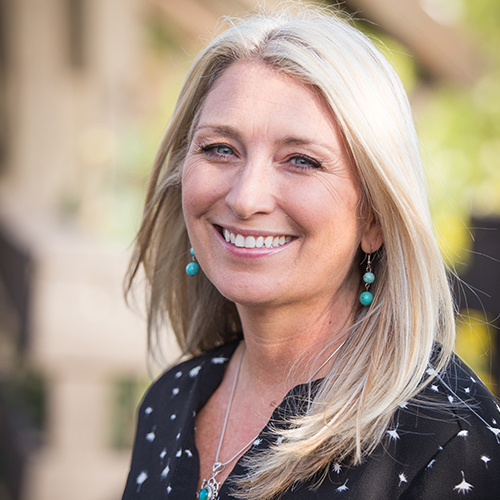
Talk To Me: How Breastmilk Acts as a Communication and Gene Expression Tool Between Mother and Child

Laurel Wilson, IBCLC, CLE, CCCE, CLD is a TEDx and international speaker, author, pregnancy and lactation expert, and consultant. She served as the Executive Director of Lactation Programs for CAPPA, the Childbirth and Postpartum Professional Association for 16 years and now is on the Senior Advisor Board. She served on the Board of Directors for the United States Breastfeeding Committee from 2016-2019. She also is on the Advisory Board for InJoy Health. She owns MotherJourney, focusing on training perinatal professionals on integrative and holistic information regarding pregnancy, childbirth, and breastfeeding. She has her degree in Maternal Child Health: Lactation Consulting and is an internationally board certified lactation consultant. As the co-author of two books, The Attachment Pregnancy and The Greatest Pregnancy Ever, original Editor of the CAPPA Lactation Educator Manual, and contributing author to Round the Circle: Doulas Talk About Themselves, she loves to blend today’s recent scientific findings with the mind/body/spirit wisdom. Laurel has been joyfully married to her husband for nearly three decades and has two wonderful grown sons, whose difficult births led her on a path towards helping emerging families create positive experiences. She believes that the journey into parenthood is a life-changing rite of passage that should be deeply honored and celebrated.
Topic: Epigenetics and Breastfeeding: The Potential Longterm Impact of Breastmilk - [View Abstract]
Topic: Hold the Phone! Diet Does Matter During Breastfeeding: Implication of Diet on Fatty Acid Composition and Other Nutrients - [View Abstract]
Topic: Postpartum Mood Disorders, Breastfeeding and the Epigenetic Links from Past Into Future - [View Abstract]
Topic: Talk To Me: How Breastmilk Acts as a Communication and Gene Expression Tool Between Mother and Child - [View Abstract]
Topic: The Milk Sharing Conundrum - The Grey Area Between Scope and Need - [View Abstract]
Topic: The Placenta and Breastmilk-Unraveling the Mysterious World of the Intelligent Organs that Protect our Babies - [View Abstract]
Topic: Understanding Zika and Lyme and Breastfeeding - [View Abstract]
Topic: Unraveling the Mysteries of Human Milk: The Fascinating Role of Neohormones, Epigenetics, the Microbiome and More! - [View Abstract]
Breastmilk has long been understood to be a pathway towards long-term health for both mother and child. The specific mechanisms for how this communication works has long been studied and today many researchers believe that messenger RNAs and stem cells contribute in many ways to appropriate developmental pathways for the baby and cause gene activation that promotes health for life. mRNA in breastmilk can also be influenced by the time of day and even the timing of the babies delivery, becoming adaptive for the baby’s unique needs. Not only do these messenger RNA communicate important genetic information to the baby via breastmilk, changes in the mothers body via mRNA occur during lactation responding to a new “mothering” focus during the period of lactation. This may impact the mother’s postpartum mental states, adaptation to stress, and changes in fatty acids. This presentation highlights some of the fascinating studies that demonstrate the myriad of ways that stem cells and mRNA during lactation become the ultimate communicators, affecting change for years to come.

View Details / Enroll












